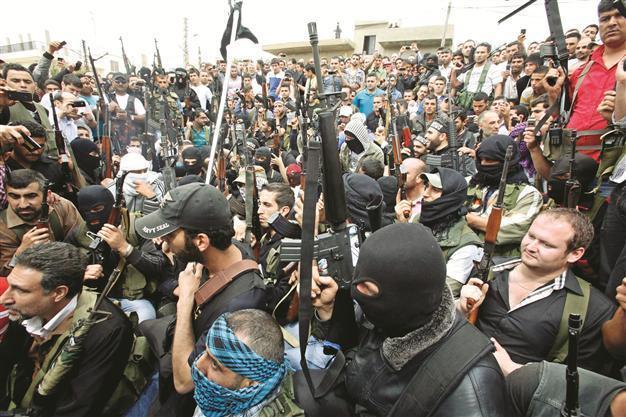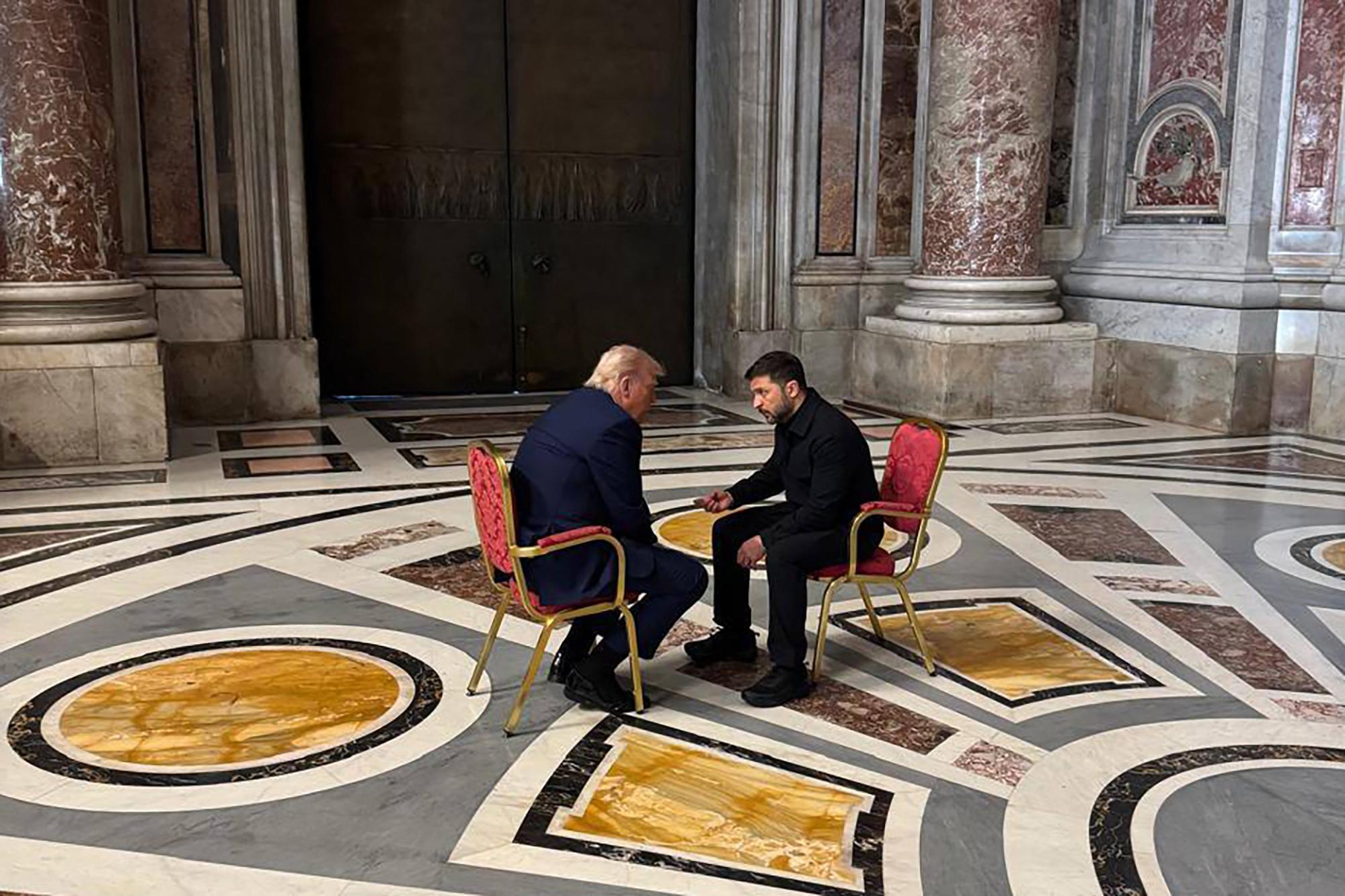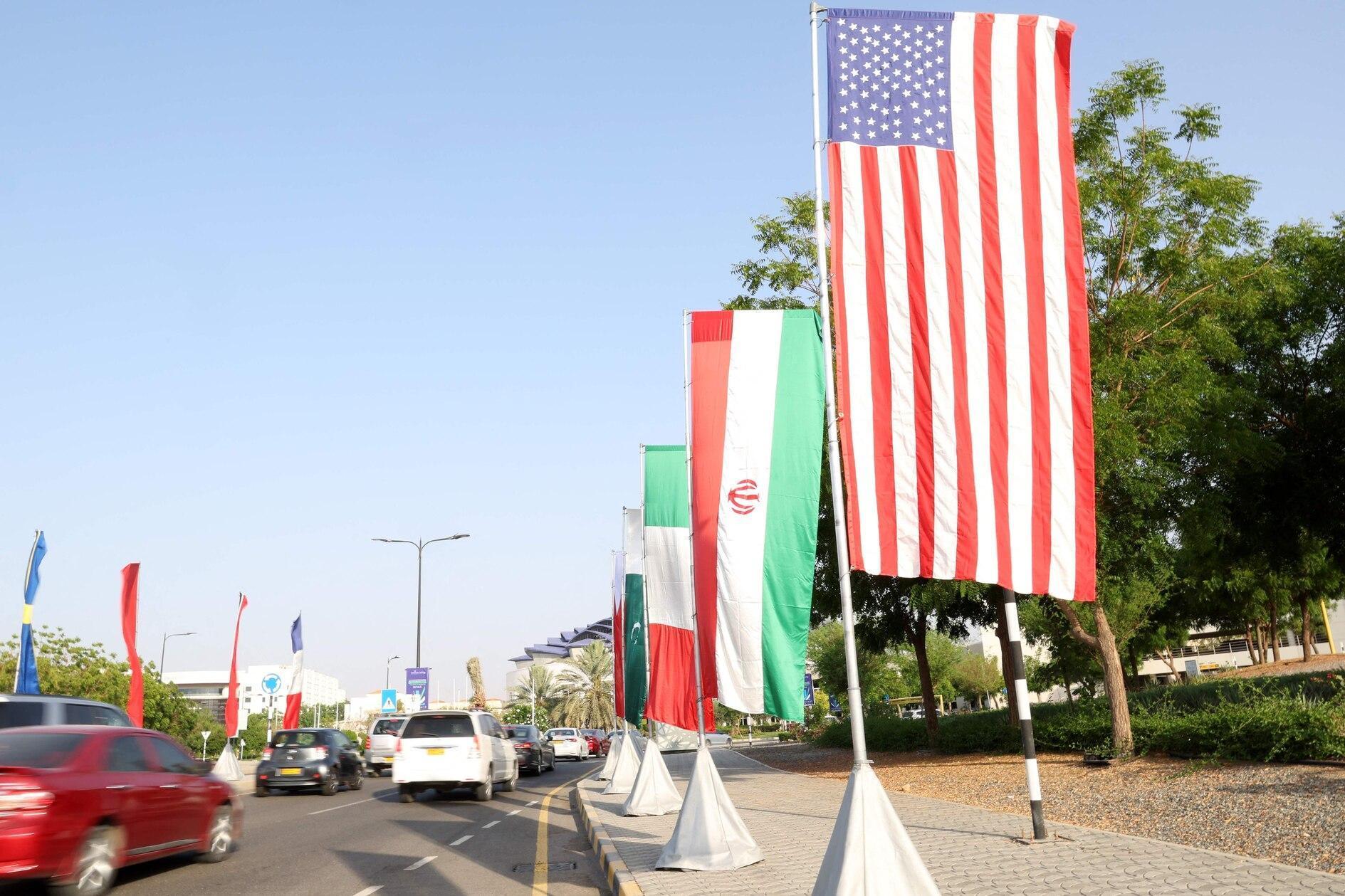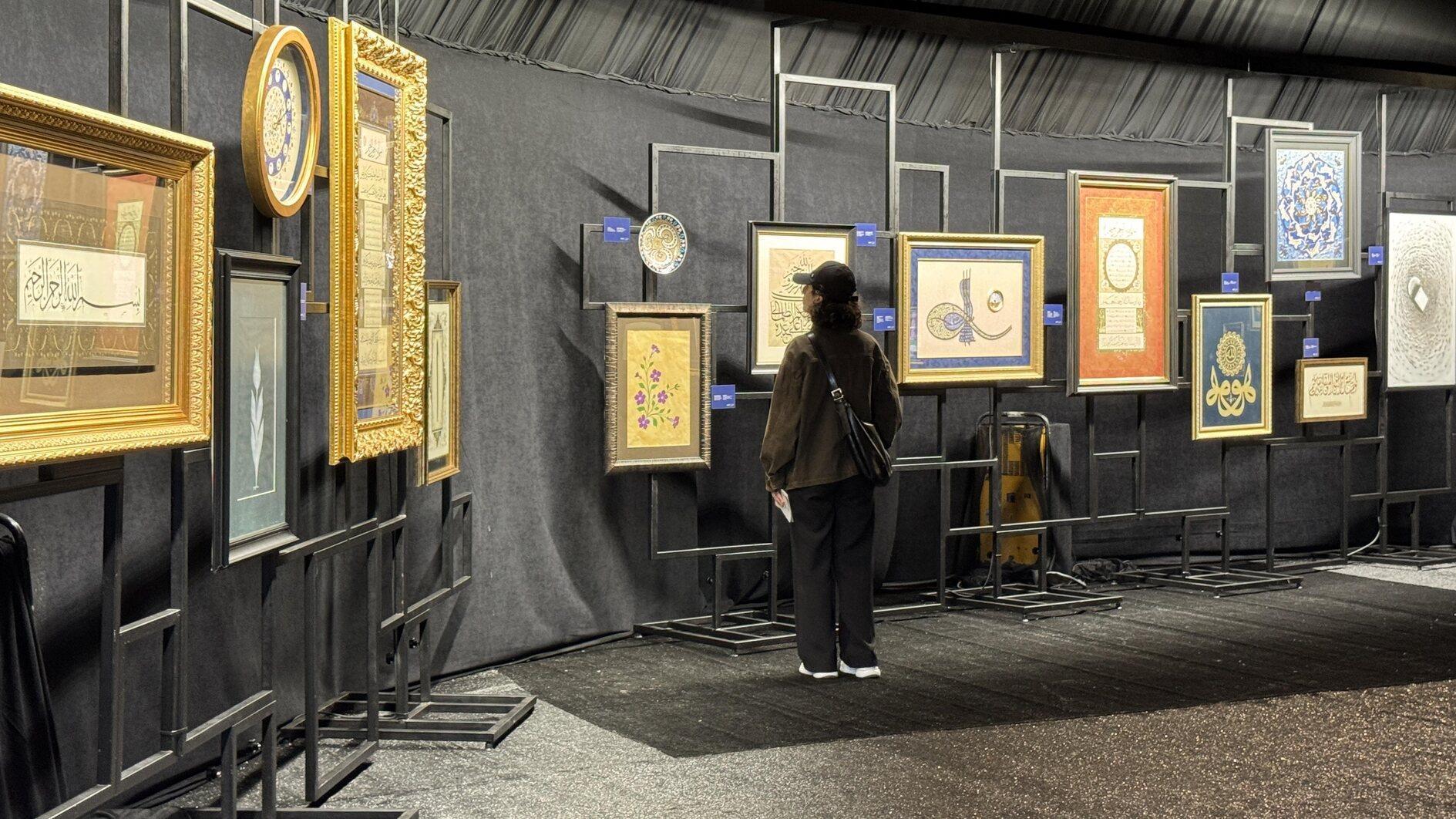Further Syria fights spill over to streets of Beirut
BEIRUT

Lebanese Sunni Muslim gunmen hold their rifles as they mourn the death of Sheikh Ahmed Abdul Wahid, a Sunni Muslim cleric, during his funeral in northern Lebanon. REUTERS photo
Street battles between pro and anti-Syrian regime groups in Beirut overnight left two people dead, a security official said yesterday, sparking concerns the conflict in Syria is increasingly spilling into Lebanon.“During the night, groups of young men cut off the road in the Tareek el-Jdideh district and street battles followed,” the official said, requesting anonymity. “Two people were killed and 18 were wounded,” he said, adding that machine guns had been fired. The streets were calmer by yesterday morning, although tension was still palpable in the capital, where residents fear a repeat of sectarian clashes similar to those that brought the country close to civil war in 2008.
The violence in Beirut’s predominantly Sunni neighborhood of Tareek el-Jdideh erupted hours after Sheik Ahmed Abdul-Wahid, a prominent anti-Syria Sunni cleric, and his bodyguard were shot dead on May 20 at a checkpoint in northern Lebanon. Earlier, gunmen shouted “Down with Bashar!” and said the Syrian leader was trying to “transfer the crisis to Lebanon.” Scores of men opened fire with their rifles in the air as a sign of mourning. Wahid’s funeral was held later yesterday in the northern region of Akkar, where many businesses and shops were closed as a mark of respect.
Thousands at the sheik’s funeral
His body was transported to his hometown of El Bireh, draped in the Lebanese flag as well as the Syrian revolutionary flag and that of the anti-Syrian Future Movement of ex-premier Saad Hariri. Thousands poured into a square outside a mosque in Bireh to take part in the funeral.
A judicial official said yesterday that 21 soldiers were being questioned by military police in relation to the sheikh’s death. His killing followed a week of intermittent clashes between Sunnis hostile to the Syrian regime and Alawites who support al-Assad, which left 10 people dead in the northern Lebanese port city of Tripoli. Yesterday in Douma, a north suburb of Syria’s capital-Damascus, forces ambushed and killed nine army deserters, as they were retreating under cover of darkness, said the Syrian Observatory for Human Rights. Heavy fighting also raged overnight between soldiers and rebels in other parts of Damascus province.
Compiled from AP and AFP stories by the Daily News staff.
Turkey busts Colonel kidnapping plans
HATAY – Anatolia News Agency
A Turkish prosecutor has said in a statement that three people have been released after they were detained on claims of attempting to handover a defected Syrian colonel to the Syrian state, by kidnapping him from the camp in southeastern Turkey where he is currently staying.
The Adana Prosecutor’s Office media spokesperson Ahmet Akkaya said yesterday that the three suspects were released according to the documents in the prosecution file. “A decision will be made according to the result of the prosecution,” said Akkaya. Earlier in the day, Hatay Public Prosecutor Adem Yazar said intelligence had been received that a colonel staying at a camp at the Apaydın village in the southeastern province of Hatay would be kidnapped.
Yazar said three people, including two Syrians and one Turkish national, were detained by the Turkish police. Yazar said the prosecution about the three suspects was still continuing.
Five people, including a member of Turkey’s National Intelligence Organization (MİT), were detained in February for turning over Hussein Harmush, a founder of the Free Syrian Army, who is reported to have since been executed. Col. Harmush and Mustafa Kassum were reportedly taken out of a refugee camp in Altinözü, Hatay province, near the Syrian border and handed over to Syrian security forces, the Adana prosecutor’s office previously said in a statement.
In June 2011, Harmush became the first Syrian military officer to publicly declare his opposition to the al-Assad regime’s deadly crackdown on protesters.
















